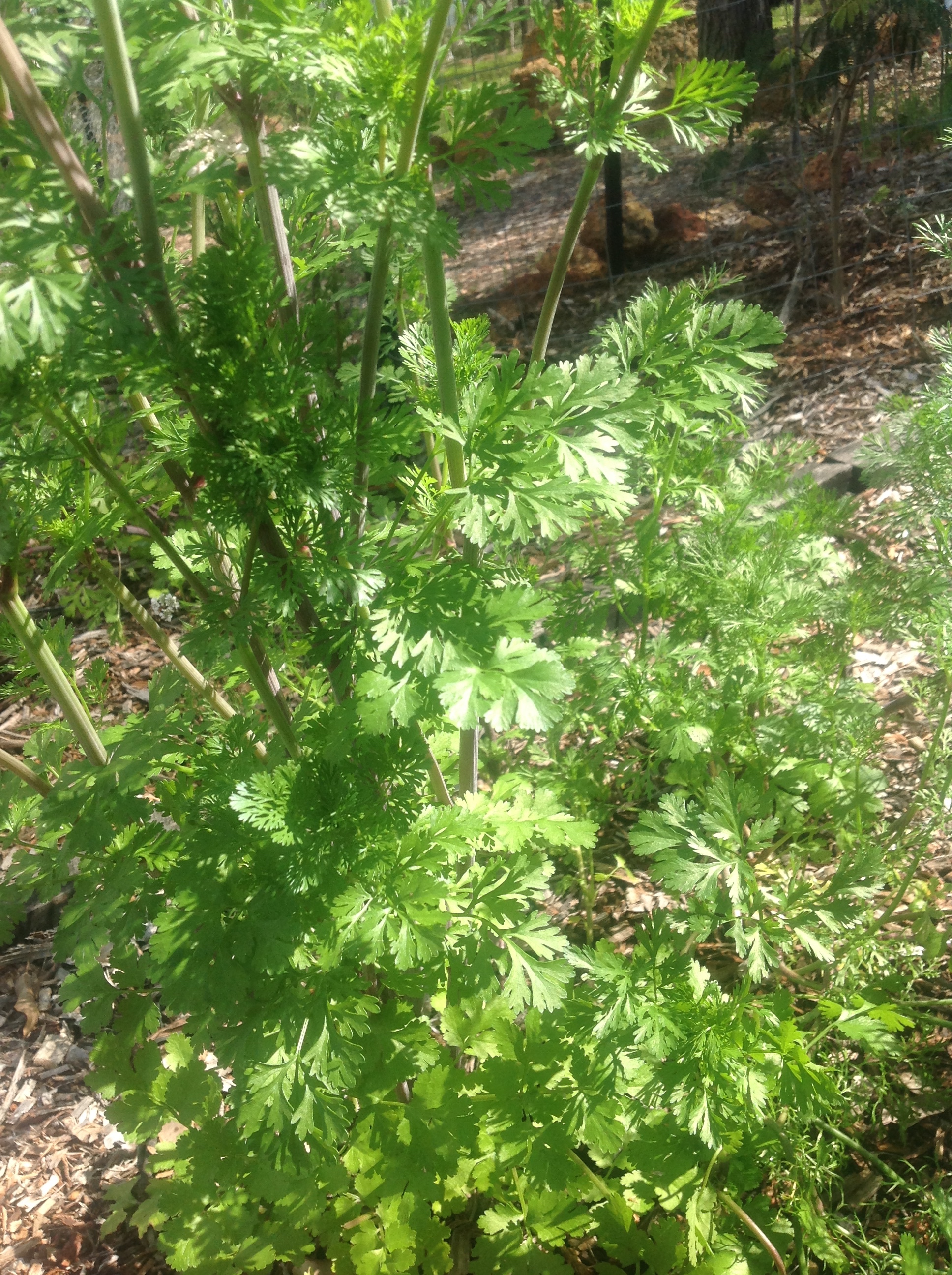
Coriander / Coriandrum sativum

Umbelliferae / Apiaceae
Coriandrum
sativum
Cilantro, Chinese Parsley, Dhania
Antibacterial, Anti fertility, Antihyperglycemic, Antihyperlipidmic, Antioxidant, Anti-proliferative, , Antispasmodic, Appetiser, Aromatic, Carminative, Digestive stimulant , Diuretic, Hypotensive, Refrigerant, Stimulant, Stomachic .
Leaf , seed , root.
2.13 gm of Protein / 100gms, Vitamins- A, B1, B2, B3, B5, B6, C,E,K . Minerals- Calcium, Iron, Mahesium, Manganese, Phosphorus, Potasium, Sodium, Zinc Fatty oil, coumarins, Flavonoids, Malic acid, Phthalides, Phenolic acids, Psoralen,Tannins, Volatile oil . The volatile oil contains carvone, geraniol, limonene, borneol, camphor, elemol, and linalool. The Flavonoids include quercitin, kaempferol, rhamnetin, and epigenin. Coridander also contains active phenolic acid compounds, including caffeic and chlorogenic acid.
This herbs is excellent for chelating heavy metals out of the body. Eaten with food or on it's own it aids digestion. It is also used to help regulate thyroid function . NB. contains a compound which is a MAO - A inhibitor therefore should not be used by anyone taking SSRI's or antidepressants.
It is used for Love, Health and Healing. The Leaf is used in Love sachets. The powdered seeds are infused in warm wine to make a love potion. The seeds are carried to ease headaches. Eating coriander when pregnant will enhance your child's intelligence.
https://www.theherbalist.com.au/herb_gallery/coriander